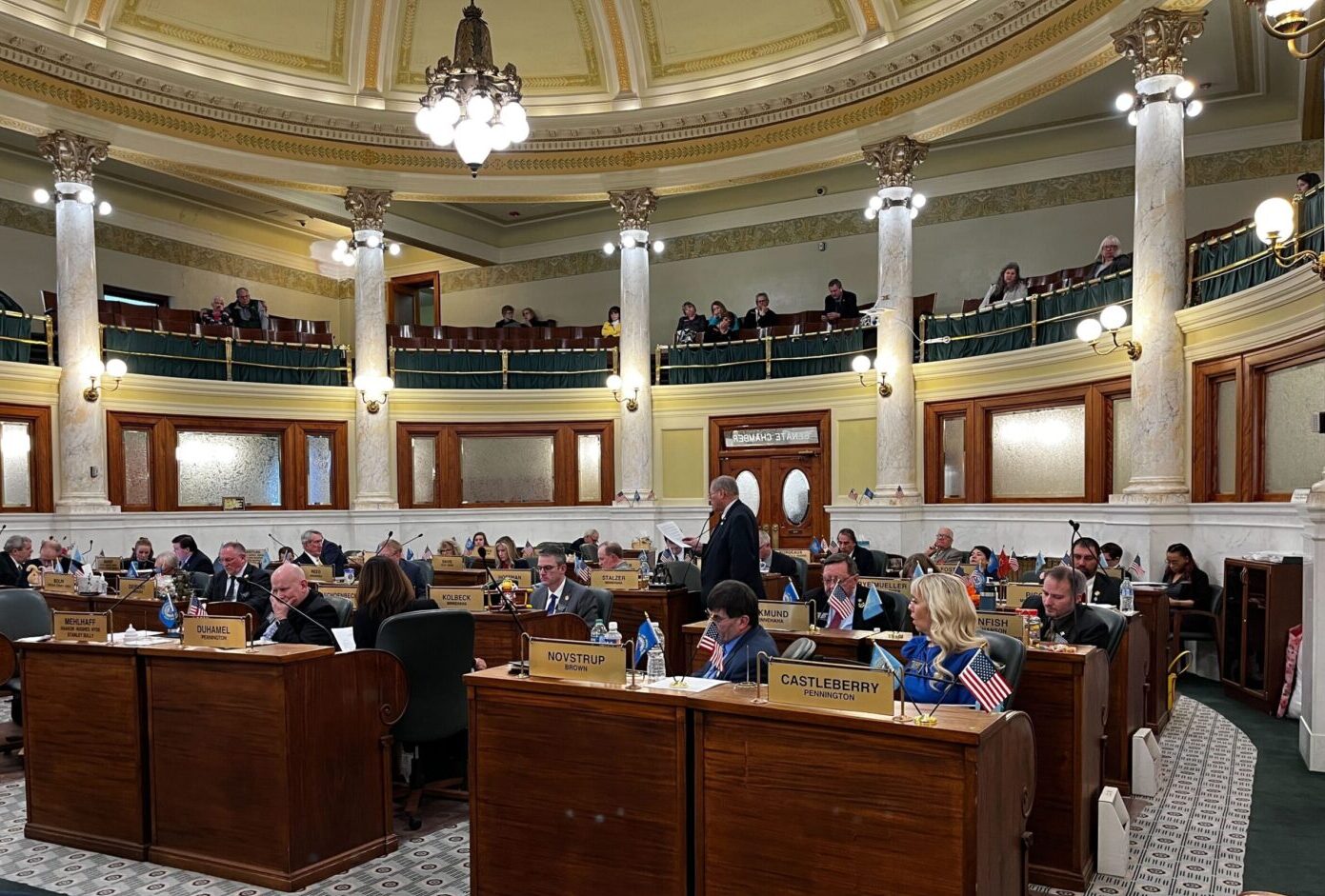
John Hult, South Dakota Searchlight – A bill that would adjust South Dakota law on child pornography includes provisions barring the possession of sexually explicit deep fakes of real children or artificial intelligence-generated children.
Senate Bill 79 passed out of the Senate Judiciary Committee unanimously on Monday, supported by its sponsors and by Attorney General Marty Jackley. Jackley started the 2024 legislative session with a bill to ban deep fakes and AI-generated child pornography, but deferred to Sen. David Wheeler, R-Huron, after learning that SB 79 would include those provisions. The main sponsor of Wheeler’s bill in the House is Rep. Fred Deutsch, R-Florence.
“Deep fakes” are images or videos that affix the faces of real people to sexually explicit content. The AI-generated pornography barred by the bill involves imagery that mirrors child pornography but is not designed to resemble specific children.
Both types of content are legal under South Dakota law at the moment. Cases involving computer-generated child porn in the state are currently handled by federal prosecutors, because federal law bars such imagery.
Wheeler’s bill was amended in the committee to include definitions for computer-generated child pornography, which would allow prosecutors to pursue charges for its possession as they would with real imagery or videos.
That language is just a small part of the bill’s provisions, however.
The primary goal of the bill is to differentiate between the possession, distribution and manufacturing of child pornography. Under current law, all three crimes are class four felonies, punishable by up to 10 years in prison.
That’s not the right way to attend to those kinds of crimes against children, Wheeler told the committee.
“Those are three separate crimes, and those are three separate ways of victimizing an individual,” Wheeler said.
The bill would:
- Boost the felony class for the manufacture of child pornography to a class two, punishable by up to 25 years in prison, with a 10-year mandatory minimum.
- Boost the felony class for the distribution of child pornography to class three, punishable by up to 15 years in prison, with a mandatory minimum of five years.
- Add a mandatory minimum one-year sentence for the possession of child pornography, which would remain a class four felony.
- Make it a misdemeanor for an adult to share sexual images with a minor with whom they’re involved sexually, but specify that those images won’t be the basis for a felony child pornography charge.
- Prevent minors from being charged with child pornography possession for taking naked pictures of themselves.
- Prevent people from defending themselves in child porn cases by arguing that the child or parent consented to its production, possession or distribution.
The bill was supported the state’s prosecutors and human trafficking advocates. The bill passed out of committee on a unanimous vote, and will now move on to the full Senate.
